LNG has earned an increasing role in the energy supply of Europe, as well as of other world areas, strengthened by the 2021-22 crisis and the related fall of Russian supplies to Europe. This role is expected to further increase as supply projects are ruthlessly developed in all continents, while Europe plans to phase out remaining Russian supplies and limit its exposure to pipeline suppliers. At the same time, awareness of the fuel’s environmental footprint increases and initiatives are undertaken to control it.
On the other hand, the LNG market represents a major challenge for energy policy makers and regulators, as its global dimension expands competition and enhances market interchangeability, but its global outreach limits the scope of regulatory activities. Whereas technology plays a major role in this industry, trading arrangements and political decisions are just as relevant, but may significantly differ from those adopted by national and continental electricity and gas markets
Building on the recent FSR experience of training and discussing LNG market developments in Africa, Asia and Latin America, this Course offers an overview of market organization and development, trading and pricing arrangements, environmental challenges and solutions, and regulatory issues.
Through expert’s insights from from academia, policymaking, and the world of practice, this course will delve deeper into the LNG dynamics, equipping participants with a better understanding of the global markets, policy and regulatory frameworks and future environmental challenges.
With an average 5% annual growth in the last decade, LNG is one of the most dynamic global energy sources. Since 2000, exporting countries markets doubled to 22 while importing markets increased five-fold to 48. Supply growth has been driven by technological improvements enabling different production and regasification options, transport cost reductions. Demand rise has been boosted by the need to diversify away from pipeline suppliers, notably after the start of the Ukrainian war; the opportunity to turn to cleaner fuels to fight air pollution in large urban areas of emerging economies; and the search for lower carbon emission rates in power generation, notably by coal burning industries; and the opening of new markets including small size usage in land and sea transportation and industrial consumption.
Trading arrangements have thoroughly expanded, opening short term market opportunities and hereby creating a significant market liquidity. Pricing criteria have turned complex as well as more flexible.
Whereas coal and oil consumption may be close to peaking as energy transition targets are being pursued, LNG is regarded by many countries as a significant contributor to the transition, alongside renewable energy, and its further development is widely expected.
This course is conveniently arranged over three days and timed in the best way for a global audience. Attendance is mandatory as live classes are not recorded per internal policy (Chatham House rules).
Lectures, case studies and panels will be held each day between 10:30 and 13:00 and between 14:00 and 15:30 CET, with a break between 13:00 and 14:00.
| 1 December | Day 1. The international gas market |
| 10.30 – 10.45 | Welcome to the course. |
| 10.45 -11.45 | Lecture 1: LNG market overview
|
| 11.45 – 13.00 | Lecture 2: LNG business models, corporate strategies & financing
|
| 13.00 – 14.00 | Break |
| 14.00 – 15.00 | Lecture 3: LNG trading arrangements: and pricing
|
| 2 December | Day 2. Regulatory issues |
| 10.30 – 11.30 | Lecture 4: Regulation of LNG terminals in the European Union
|
| 14.00 – 15.00 | Case Study 1: The perspective of EU LNG terminal operators
|
| 13.00 – 14.00 | Break |
| 14.00 – 15.00 | Panel discussion |
|
3 December |
Day 3: Environmental issues |
| 10.30 – 11.45 | Lecture 5: International cooperation and decarbonisation – The LNG industry responding to climate change
|
| 11.45 – 13.00 | Case Study 2: Shipping LNG vs. Hydrogen
|
| 13.00 – 14.00 | Break |
| 14:00 – 15:00 | Towards a carbon neutral LNG market: progress and issues
|
| 15.00 – 15.30 | Final discussion and close |
After completing this course, you’ll be able to:
Registration is open to all professionals (institutions, companies, associations, academics and researchers) interested in the LNG market and/or in the debate on decarbonisation of the energy system.
No specific academic background is required. This course is delivered in English.
At the end of the course, the participants earn a Certificate of Participation.
Fees:
Discounts
A 10% discount is available for groups of 5 or more participants from the same organisation. Please note that this discount cannot be combined with student discounts or donor free seat offers.
Cancellation policy
Paid registration fee is non-refundable. However, registrant substitution may be made up to 20 days before the start date of the course.
For more information, please read the full FSR cancellation policy.
*Please kindly send your certificate of current studies with the stamp of your university to FSR.Conferences@eui.eu
The start and end dates of your studies should also be clearly mentioned on the document. Please make sure that your period of studies fully covers the training course duration.
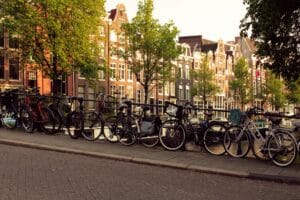
The training will focus on five areas where cities can be particularly impactful: the uptake of renewable energy, improving the energy efficiency of the building stock, digitalisation and smart grids,…

For its first edition, the Specialised course on Electricity Markets will focus on the state of EU electricity market design, and engage participants in a deep-dive discussion around the role…
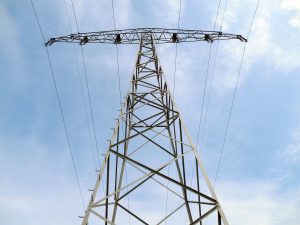
Regulation of energy utilities All you need to know in one professional course With the Annual Training on the Regulation of Energy Utilities, you will gain extensive knowledge of the fundamental principles of…
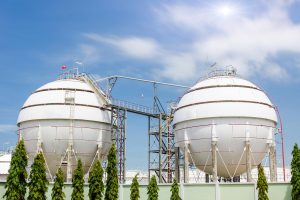
From Geopolitics to Trading: Navigate Global Gas Markets with the Experts Building on the success of our online training, Specialised Training on the Regulation of Gas Markets, we are excited…

This FSR-ACER residential course in Florence covers the scope of the EU Regulation on Wholesale Energy Market Integrity and Transparency (REMIT) and the way in which it is implemented. Mapping…
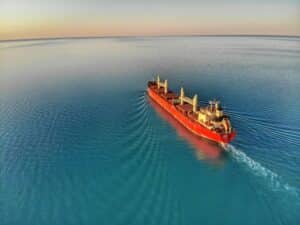
Shaping the Future of LNG: Global Perspectives on Markets, Policy, and Sustainability LNG has earned an increasing role in the energy supply of Europe, as well as of other…
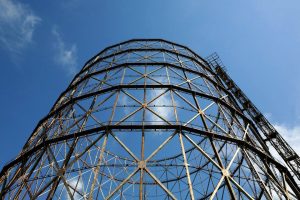
The implementation of the EU Gas Network Codes (NC) requires an important effort from many participants of the market and sound competence and specialised resources. Join us to gain comprehensive knowledge about…

All you need to know about the power sector and power systems around the world Power system regulation is never at a rest, and this is particularly true for the…

Clean Molecules: Hydrogen, Biogas, Biomethane, Synthetic Gas The 2025 ‘Clean Industrial Deal’ provides a clear framework to link decarbonisation with economic resilience and competitiveness. By accelerating the deployment of clean…
To meet, discuss and learn in the channel that suits you best.